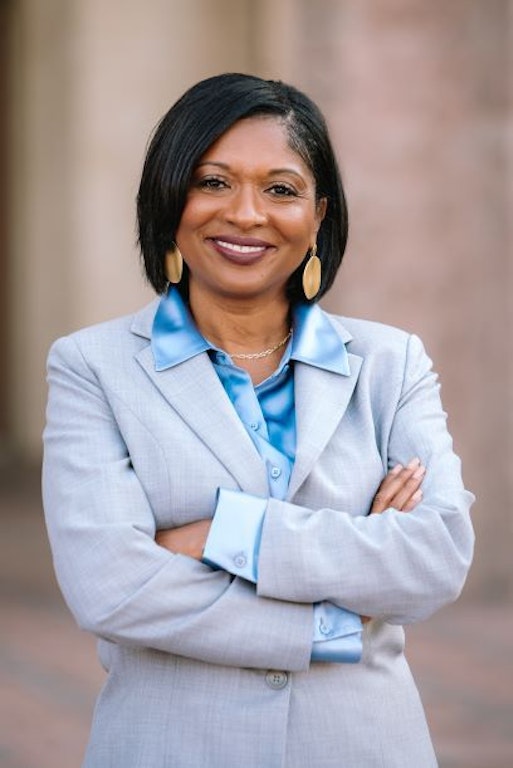
You might not believe it, but the most important election in North Texas right now is a City Council runoff in Frisco.
Why?
First, because the way Frisco grows, both physically and politically, is going to be critical to this region’s future.
Second, this race tells us a lot about our politics in this country, and whether it can seriously address the problems we face or whether it will continue to devolve into labels and gestures that are empty except as signals of cultural identity.
The runoff here is between business executive Angelia Pelham and veterinarian Jennifer White.
In normal times, this would be as dull as politics gets — a small-bore city council race. But these aren’t normal times, and this isn’t a normal city council race.
From the start, White decided this race wouldn’t be about serving on the Frisco City Council. It would instead operate along national political fault lines about who is more “conservative” — whatever that is supposed to mean for a job that revolves around voting on zoning cases and city contracts.
Pelham, meanwhile, has been treating the race for what it is: a city council seat where city issues need to be put first.
In a healthier political environment, there would be no question Pelham is the superior candidate. The race isn’t close in qualifications for the office or vision for the city. But White actually had the most votes in the general election by a wide margin, in part because so many Frisco voters are spellbound by anyone who mimics hard-line conservative campaign language.
That’s too bad. Because a White win would be a huge setback for Frisco, a signal of the triumph of a narrow, nostalgic and insular political worldview that describes itself — without ever really defining the term — as “principled conservatism.”
A Pelham win would signal the opposite, that Frisco is ready to embrace a grown-up future as an anchor of the region’s prosperity, with the flexibility to adapt to change, to support the creation of wealth from property and capital, and to continue to attract national attention for its outstanding economic development planning.
White sought and gained the endorsements of far-right culture warriors like Texas GOP chairman Allen West and state Rep. Jared Patterson.
Meanwhile, the people who have helped build Frisco into the economic envy of the region are almost uniformly behind Pelham. She has the backing of Democrats and Republicans who know this race needs to be about Frisco.
It’s unavoidable at this point to mention that America’s struggle over race is at issue here.
Pelham is Black, and Black elected officials are rare in Frisco politics.
In her campaign, Pelham — who has voted for Republicans and Democrats — doesn’t dwell on racial issues. She’s focused on City Hall concerns. But when it comes up, she talks honestly about the need for Frisco to unite despite differences over race and politics — a message that once was common-sense conservatism.
During a recent neighborhood forum, Pelham stopped to point out that all people of color were on one side of the room and there were none on the other. She urged people to sit together, to unite.
People got up and started to move seats. They applauded and cheered as they did it. It felt good.
“That is what Frisco is about and we have to stand for that. We can’t tolerate this division any more,” Pelham said.
How has that played among some Frisco conservatives?
Pelham has been connected, falsely, with a Frisco activist named Hava Johnston, who has supported the Black Lives Matters movement. Fake social media messages pretending to be from the “Democrat Party” call on Frisco Democrats to join together to vote for Pelham.
Pelham said she has never met Johnston in person and has no connection to the Black Lives Matter movement. But the fake posts have been broadly shared on social media and discussed among Frisco voters as if they are real.
In short, the posts had their intended effect: to anger conservative voters.
Meanwhile, a group known as the Frisco Conservative Coalition, led until recently by the controversial Frisco pastor Brandon Burden, is currently advertising a conference “on the secrets behind the Black Lives Matter organization, and their threat to our national security.”
Connecting Pelham to Black Lives Matter is likely damaging to her with voters who are easily misled and manipulated by false social media narratives.
Burden, meanwhile, has actively supported and contributed to White’s campaign. He was removed from FCC leadership in January after he came under fire for urging his congregants to keep their guns loaded and to stock up on food and water prior to Joe Biden’s inauguration as president.
When we asked White about Burden’s comments in our Voter Guide questionnaire, she shifted the blame to the media.
“Every one of us at one time or another has said something we would take back, or at least change the way it came out. The establishment media was out to participate in ‘cancel culture’ and it is very destructive to our residents,” she wrote.
But Burden’s style of far-right activism has become a problem for Frisco, where mainline conservatives focused on the city’s growth worry Frisco is becoming ground zero for election-denial and conspiracy theories. The community has already been connected to the Jan. 6 storming of the U.S. Capitol, thanks to residents who took part and are facing charges.
Much more of that and it will begin to affect Frisco’s ability to attract and retain top corporations, and it could stunt the city’s ability to attract entrepreneurial residents.
As to the question of racial division in Frisco and around the country, White dismissed it. The real problem is propaganda and indoctrination over race, she said.
“We need to teach REAL American history, and not erase our history, so we can learn from it,” she wrote.
That fails to acknowledge the reality that many Frisco residents of color have expressed concerns about the community’s inclusivity.
As voters dive into this election and learn more about the candidates, one thing becomes crystal clear. There is one candidate who is focused on the nuts and bolts of local government, and there is another candidate who is a national political ideologue who displays little understanding of how Frisco needs to manage its future.
White has had little prior involvement in local government. Her responses on local issues are notably thin. She failed to show up to the Frisco chamber’s candidate forum, despite being given a two-week window of dates, according to the chamber. She didn’t attend this newspaper’s candidate interview.
Her website and social media offer few clues about her plans if elected beyond bromides about low taxes and, naturally, the need to reduce multifamily housing in Frisco.
The multifamily issue is complex, as it is in every wealthy area. Pelham favors limiting multifamily housing to the city’s urban core and linking it to offices and services like restaurants and grocery stores. Her plan is nuanced and would help build Frisco’s tax base.
White, meanwhile, is capitalizing on many residents’ frustration over apartments without offering a real path forward that will help Frisco create a balanced and sustainable tax base for future generations. That’s not conservative. It’s wishful thinking.
It’s also a false promise to recapture a lost past.
Unfortunately, that’s a common theme in many so-called conservative campaigns these days.
In reality, the nostalgia rarely aligns with actual history. And planning around nostalgia is no way to address the problems of the present or future.
This race is going to tell us a lot about Frisco. And it’s going to impact what becomes of one of our most important cities.
Every voter who goes to the polls should know that and treat it with the greatest seriousness.
Rudolph Bush is the deputy editorial page editor of The Dallas Morning News. Email rbush@dallasnews .com. Read more on Twitter: @dallas politics
